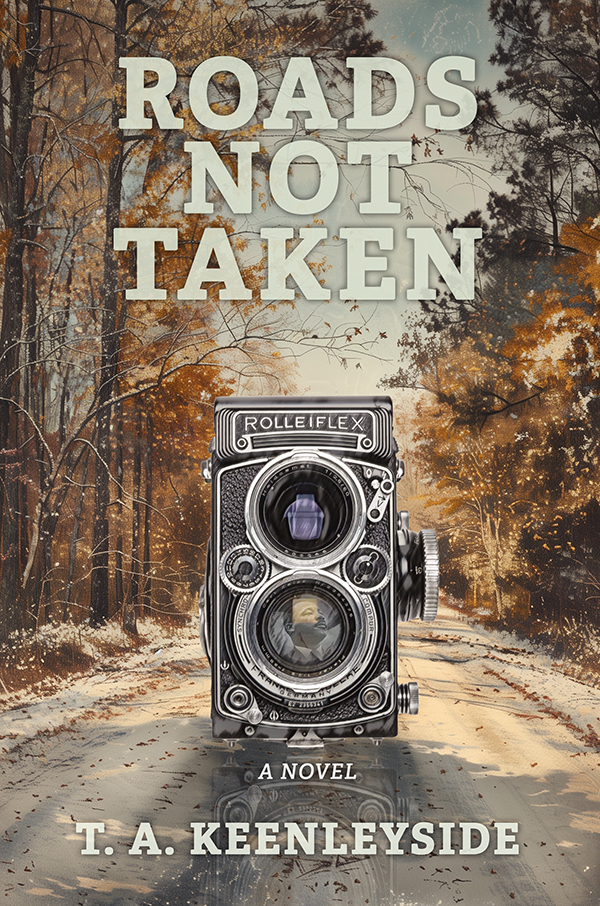Alistair is a kid with a preternatural ability to predict bad outcomes. Typically, that means he’s somewhat shy and over-cautious. However, a surprising encounter with an attractive counterpart at Model UN sets him onto a life of adventure: politics, journalism, and a deep and abiding love for all of humanity. A childless widower in his old age, Alistair is now in a position to wonder whether the harm he did to his loved ones was worth his lifestyle of occasionally ambiguous moral conviction.
T.A. Keenleyside’s ROADS NOT TAKEN tells the story of a life in crisp, active prose. In the descriptive language especially, the effect can be startling at times. As Alistair, himself in his 70s, cares for a woman in a nursing home, the text observes, “Her skin is sallow and leathery like the drying hide of a butchered animal”—a description so visceral as to evoke discomfort. The text also has a knack for encapsulating character in a few muscular sentences. A fellow journalist, for instance, is warmly rendered with the note that “[w]hen she was working, her mouth and jaw were set tight and her chin arched slightly upwards as if she were a boxer inviting an opponent to take a jab.” Well-crafted sentences like these, supporting character and theme with powerful imagery, are among the great joys of the text. Such weighty moments are also counterbalanced with a persistent, wry sense of humor. The Cuban Missile Crisis, for example, transpires largely within the context of its young lovers’ budding relationship: “The pleasure of being together was, however, diminished by Ginny’s anxiety that they were about to be annihilated in a nuclear war when they were just on the cusp of a lifetime together. Alistair, on the other hand, was sanguine about the situation.”
ROADS NOT TAKEN covers six decades of Alistair’s life, and, unfortunately, it does lose some focus across that span—although this may well be a reflection of Alistair’s character as much as a foible of the text itself. Most notably, the narrative is largely structured around Alistair’s relationships with women, and these women are underserved in the second half of the text. Childhood sweetheart Ginny and fellow journalist Peggy are rich, complex characters, and there are a few sections of the text told from their perspectives—ensuring that the reader appreciates their interior lives. By contrast, subsequent love affairs are flimsy, carried on with women who seem to throw themselves at Alistair without rhyme or reason and leave him the same way; their perspectives and their interior lives are veiled. Again, this could be a comment on Alistair—but, if so, by this point he is becoming a less interesting person, and the story is much less successful than it was when he had fully rounded, challenging partners.
The prose overall is effective, but some editing issues do appear, particularly in the last quarter of the text. There are a few issues with placement of quotation marks around dialogue: sometimes they’re missing, sometimes doubled. There’s also a notable uptick in the occurrence of doubled-letter typos (such as the interruption of an intimate moment with the utterance, “Ttouch me”). Comma use also gets dodgy, especially when connecting exclamations or interjections to a clause (“Now, you tell me;” “Poor, Mom”). The rest of the text makes it clear that these are simply unresolved typos, but it does feel that editing fatigue set in near the close of the story.
Despite these few warts, ROADS NOT TAKEN is still a sensitive and compelling tale of moral conviction and love for humanity.
Though its plotting and characters are sometimes uneven, T.A. Keenleyside’s ROADS NOT TAKEN strides boldly through global history with some startlingly sharp prose and persistent moral courage.
~Dan Accardi for IndieReader

